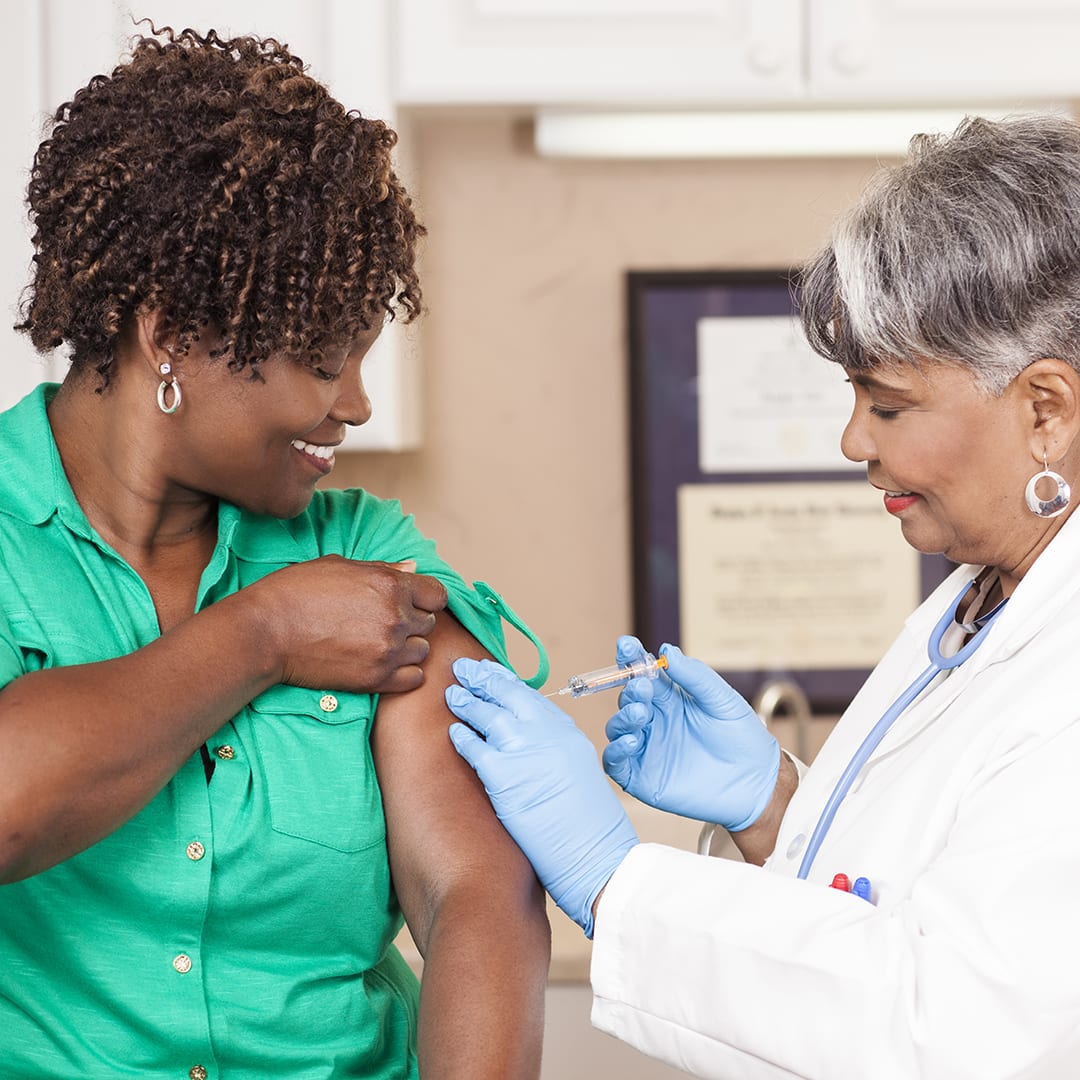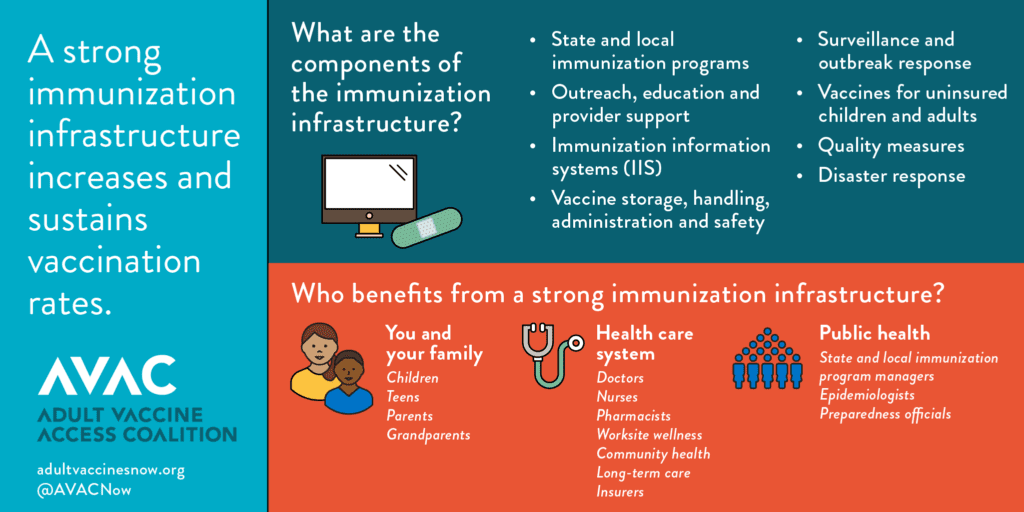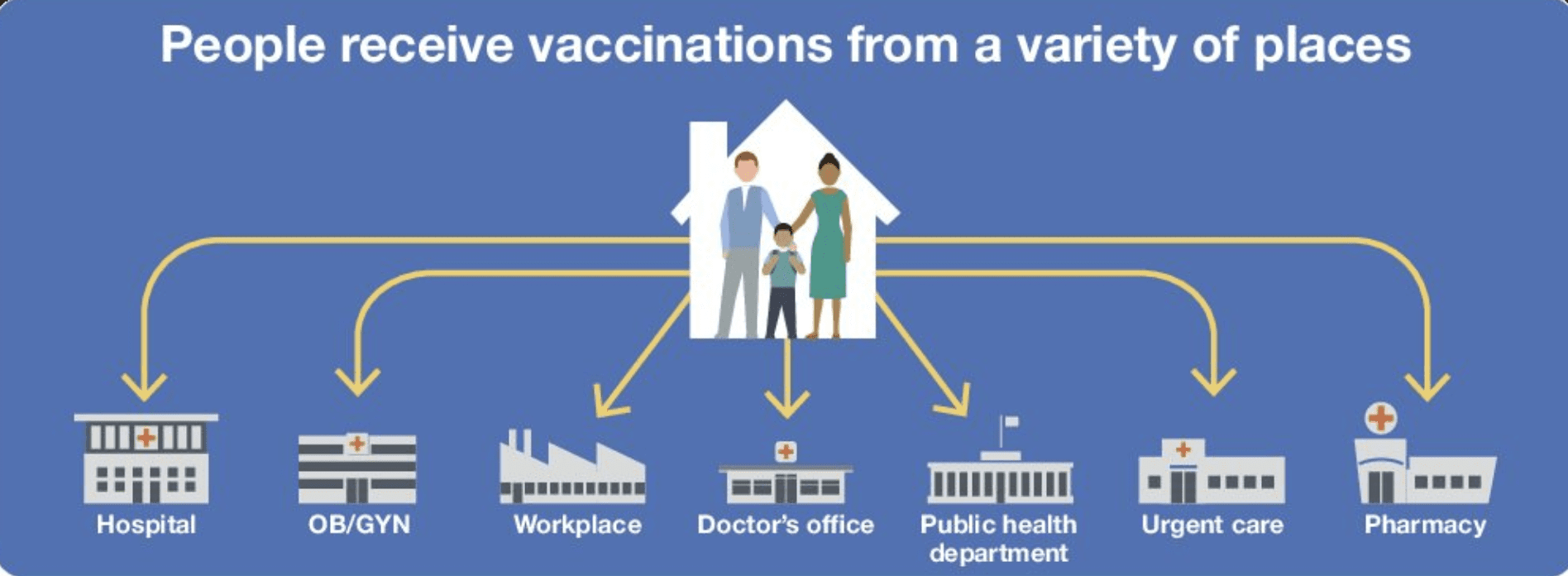AVAC is committed to advocating for improvements in vaccine infrastructure.
AVAC has successfully pushed for greater federal investments in vaccine infrastructure and for improving reporting of adult vaccinations to state immunization registries.

Imagine a world where, when faced with a pandemic for which vaccine administration is key to public health, all health care providers could have access to a registry that tracked and sent reminders to all Americans who needed a pandemic protective vaccine and who also needed other recommended vaccines to improve their underlying health. That is what the world would look like with serious investments in immunization information systems.
Cecelia Thomas
Trust for America’s Health
Immunization infrastructure is of the utmost importance at the federal, state, and local levels to strengthen vaccination practices in both the public and private sectors. Our infrastructure is vital to assess the impact of immunization programs through disease surveillance, support outbreak investigation and control, and monitor vaccines’ effectiveness.
Advancements in health information technology create multiple opportunities for greater access to and utilization of immunizations among adults. Immunization information systems (IIS), also known as registries, are confidential, population-based, computerized databases that record all immunization doses administered by participating providers to persons residing within a given area.
IIS are critical for increasing reporting of adult vaccinations, tracking vaccination status, identifying areas of need, and improving patient outcomes and care.
IIS are a powerful tool for managing immunization records and empowering patients, providers, and administrators to make informed vaccination decisions. AVAC has been an important partner in working with Congress and federal agencies on policies to increase IIS participation and timely vaccine reporting for immunizing providers, and improve interoperability.
Rebecca Coyle
American Immunization Registry Association (AIRA)

